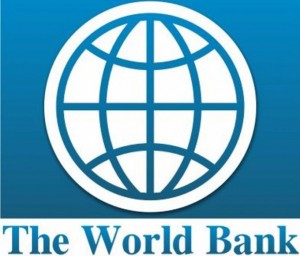Ghana has about $472m undisbursed funds – World Bank
 Ghana has about $472.79 million of undisbursed funds out of the total commitment of $1731.83 million allocated by the World Bank for the implementation of projects in the country.
Ghana has about $472.79 million of undisbursed funds out of the total commitment of $1731.83 million allocated by the World Bank for the implementation of projects in the country.
The total disbursed amount of $1140.84 million represented about 66 percent of the total amount, with the disbursement ratio at 27.2 percent as at March 2017.
Dr Beatrix Alla-Mensah, Senior Operations Officer at the World Bank, speaking at the opening of the Country Portfolio Performance Review (CPPR) in Accra, said the figures were among the highest in the Africa region and commended the implementing organisations for contributing to the high disbursement ratio.
She said the outstanding amount in the portfolio was due to the completion of the International Development Association cycle 17 and would soon begin the IDA 18 cycle which would increase the amount in the portfolio.
She noted that the transport, energy, water and sanitation and education sectors had the biggest chunk of the portfolio and slugs in these sectors affected the rest of the portfolio.
Dr Alla-Mensah noted that the performance benchmarks for the review included the number of projects, net commitment amounts, disbursement ratio, number of actual and potential problem projects, proactivity levels and overdue Implementation Status Results reports (ISRs).
Ghana currently has a total of 20 projects with good disbursement ratios but has four actual and three potential problem projects.
“For actual problem projects, this means that the projects had in a ‘moderately unsatisfactory (MU)’ status for their Project development Objectives and their implementation progress for a very long time, while the potential problem projects had moderately satisfactory ratings and been in that status for some time” she explained, adding that there was the need to do something about that.
The actual problems projects include; the Ghana West Africa Regional Fisheries project, Ghana Climate Change Innovation Centre, Ghana Transport project and the Ghana GAMA Sanitation and Water project, while the potential problem projects were; the Ghana Energy Development and Access project, Ghana Maternal, Child Health and Nutrition project and the Land Administration Project II.
Dr Alla-Mensah also entreated organisations implementing World Bank funded projects in Ghana to be candid in their evaluations and ratings of implementation progress in order to give a correct view of the programme.
Ghana, for instance, rated the implementation of 13 projects in the financial year, 6 as satisfactory and seven as moderately satisfactory, but rated five as satisfactory and 11 as moderately satisfactory in FY17.
“This can mean two things; either we are being very candid with the ratings or the quality of the portfolio has dropped,” she said, adding that there was the need to delve into the project specifics to ascertain whether it was candour or deterioration in project activities.
She bemoaned the high completion cost of projects in Ghana saying efficiency was a major problem that had to be dealt with.
She said delays in implementation, safeguards issues, variation orders and other challenges often doubled or tripled the cost of project implementation.
Other challenges faced included; procurement issues like approvals, and clearing of documents, and social and environmental risks and safeguards; including inadequate awareness amongst high level decision making authorities, weak institutional capacity and poor quality of safeguards instruments.
Source: GNA
